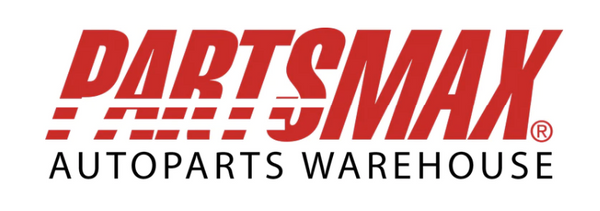Investing in the right body shop tools is crucial for auto repair businesses aiming to deliver quality work while maintaining profitability. Whether you're starting a new shop or upgrading your existing facility, understanding which equipment provides the best return on investment can make the difference between success and struggling to compete. This comprehensive guide will help you navigate the essential tools needed for a modern auto body repair facility.
Essential Equipment Categories for Auto Body Repair
Paint Preparation and Storage Solutions
Efficient paint preparation and component storage systems are fundamental to maintaining workflow and quality. The latest innovations in this category include:
- Adjustable Paint Hanger systems that maximize workspace efficiency and ensure proper paint coverage
- Multifunction paint stand units offering versatile support for various body components
- Wheel Master Paint Stand for specialized wheel refinishing operations
- Auto body parts cart solutions for safe component transportation
- Wall Mounting Folding Bumper Rack for organized storage and space optimization
Heavy-Duty Equipment Essentials
Your shop's foundation relies on robust, reliable equipment that can handle daily demands:
- Frame machines and measuring systems
- Welding equipment (MIG, TIG, and spot welders)
- Hydraulic systems and lifts
- Air compressor systems
- Dust extraction equipment
Smart Investment Strategies for Tool Acquisition
Building a comprehensive tool inventory requires more than just purchasing the latest equipment—it demands a strategic approach that balances immediate needs with long-term business goals. By developing a thoughtful acquisition strategy, shop owners can maximize their return on investment while ensuring they have the right tools for current demands and future growth.
Prioritizing Essential Purchases
When building your tool inventory, consider this strategic approach:
- Start with fundamental repair tools that generate immediate revenue
- Invest in quality storage solutions like the wall mounting bumper stand
- Add specialized equipment as your business grows
- Upgrade existing tools based on ROI analysis
- Consider technician preferences and efficiency
Quality vs. Cost Considerations
Making informed decisions about tool quality is crucial:
- Premium tools often offer better longevity and warranty coverage
- Basic hand tools can be mid-range quality initially
- Invest heavily in safety-critical equipment
- Consider maintenance costs in total ownership calculations
- Factor in productivity improvements from better equipment
Specialized Tools for Modern Repairs
Panel and Component Manipulation
Modern body work requires precision tools for various applications:
- The 18 pc sliding hammer kit for dent repair and panel work
- Car door jack lift for precise component handling
- Specialized clamps and holding devices
- Panel straightening systems
- Spot weld removal tools
Advanced Measurement and Diagnostic Equipment
Digital precision has become essential in modern repair work:
- 3D measuring systems
- Paint thickness gauges
- Electronic diagnostic tools
- Alignment checking equipment
- Documentation systems

Maximizing ROI Through Proper Tool Management
Organization Systems
Implementing effective organization systems increases efficiency and tool longevity:
- Dedicated storage areas for frequently used tools
- Mobile tool carts for convenience
- Wall-mounted organization systems
- Color-coding systems for quick identification
- Regular inventory audits
Maintenance Protocols
Establish strict maintenance schedules for all equipment:
- Daily cleaning and inspection routines
- Weekly maintenance checks
- Monthly comprehensive evaluations
- Quarterly professional servicing
- Annual equipment audits
Technology Integration in Modern Body Shop Tools
The digital revolution has transformed auto body repair, introducing smart tools and connected systems that enhance precision, efficiency, and documentation capabilities. Understanding how to leverage these technological advancements in your tool selection can dramatically improve repair quality, streamline workflows, and provide valuable data insights for business optimization.
Digital Management Systems
Modern shops benefit from digital tool tracking:
- Inventory management software
- Maintenance scheduling programs
- Usage tracking systems
- Cost analysis tools
- Performance monitoring
Connected Tools and Equipment
Smart technology integration improves efficiency:
- Bluetooth-enabled measuring tools
- WiFi-connected spray equipment
- Digital documentation systems
- Remote monitoring capabilities
- Integration with shop management software
Training and Certification Requirements
The complexity of modern vehicles and repair techniques demands a well-trained workforce equipped with both knowledge and proper certification. Investing in comprehensive training programs and maintaining current certifications isn't just about meeting industry standards—it's about building a team capable of handling increasingly sophisticated repair processes while maximizing the utility of your shop's tool investment.
Staff Development
Invest in comprehensive training programs:
- Equipment-specific training
- Safety certifications
- Ongoing skill development
- Cross-training opportunities
- Manufacturer-specific certifications
Future-Proofing Your Tool Investment
As vehicle technology rapidly evolves, auto body shops face the challenge of adapting their equipment and processes to meet emerging repair requirements. Making strategic investments in tools and equipment that can accommodate future vehicle designs, materials, and repair methods is crucial for long-term success in the competitive auto body repair industry.
Emerging Technologies
Stay informed about industry developments:
- Electric vehicle repair equipment
- Advanced materials handling tools
- New joining technologies
- Environmental compliance tools
- Advanced diagnostic systems
Safety Considerations in Tool Selection
In the demanding environment of auto body repair, safety isn't just a regulatory requirement—it's a fundamental aspect of business sustainability. Choosing the right tools with proper safety features and certifications protects your technicians, ensures compliance with industry standards, and ultimately safeguards your business's reputation and financial health.
Compliance and Standards
Ensure all body shop tools meet current standards:
- OSHA requirements
- Environmental regulations
- Industry certifications
- Insurance requirements
- Local code compliance
Investing in quality body shop tools is an ongoing process that requires careful planning and consideration. By choosing the right equipment and maintaining it properly, you can ensure your shop remains competitive and profitable for years to come.
---
Ready to upgrade your body shop tools? Contact PartsMax today!
📞 (305) 691-1313
🏢 3401 NW 73rd ST, Miami, FL 33147
🔍 View our online inventory of Aftermarket Auto Parts and professional body shop equipment.
Our experts can help you select the right tools for your specific needs.

